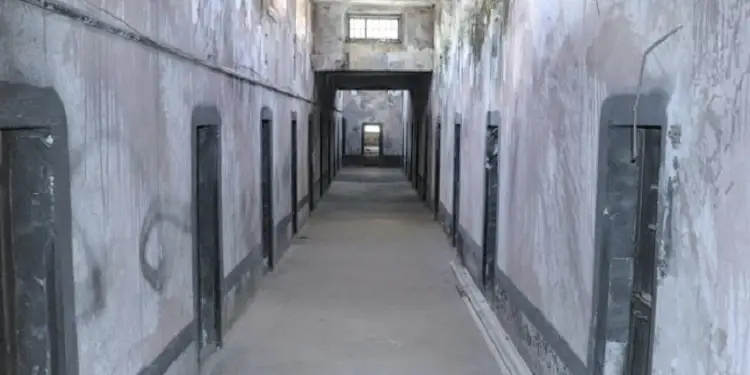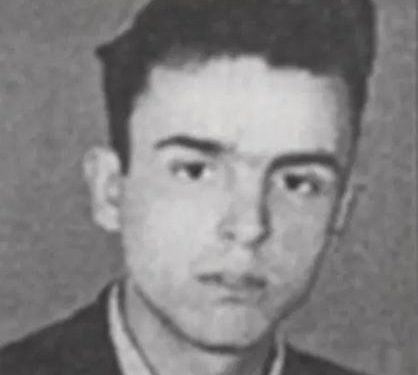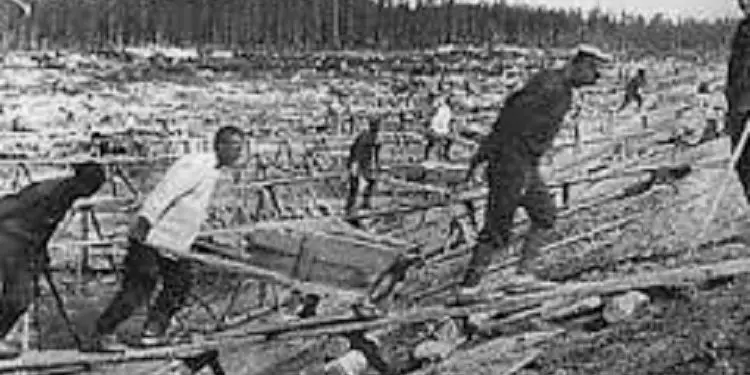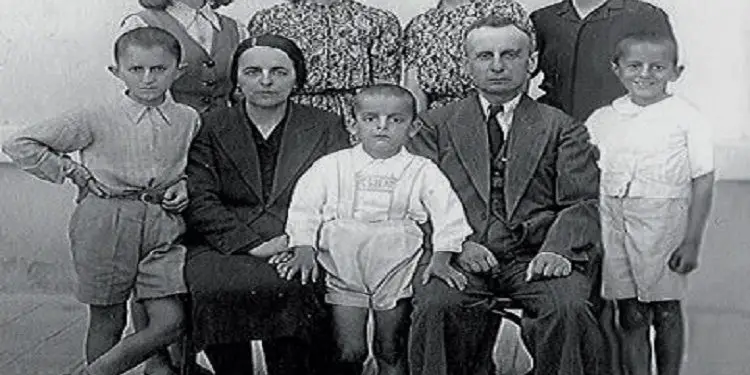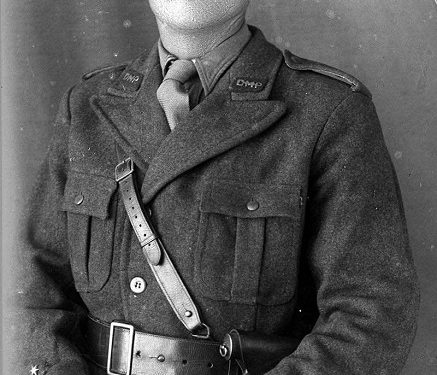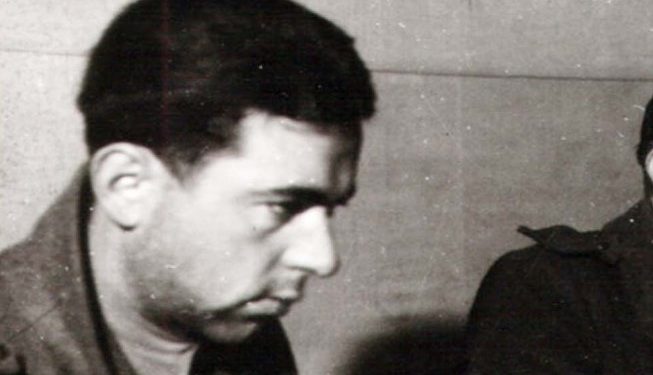By Reshat Kripa
The seventh part
Memorie.al / “Sometimes, when difficult trials fall on a child’s head from the tenderest age in the secret recesses of his soul, a kind of scale is born, a beautiful scale, with which he weighs the affairs of this world . Feeling himself innocent, he submitted to his fate without making a sound. I didn’t cry at all. He, who has no reason to be scolded, does not scold others”!
(Viktor Hugo, “The Man Who Laughs”)
SHORTED YOUTH
Dedicated to family and society,
Author
Memoir
VLORA PRISON
On December 12, 1951, we were transferred to Vlora prison. We made the way from the branch to the prison on foot accompanied by a squad of policemen.. They put us in a line. The three of us were placed in the middle, so that we would not be noticed by the crowd, which was looking at us curiously. The road passed by Neri’s house and mine.
When we passed by her house, she was on the landing of the stairs. He looked up at the sky and I don’t know what he was thinking. He didn’t see me. I looked at him longingly. But she continued in her dream. I followed her with my eyes until we passed the bend in the road and she disappeared from my vision.
In front of my gate, Genci was playing with some of his friends. He saw me and ran inside. I ran away and turned my head back. I saw the mother come to the gate. But that didn’t last long. The consulate building caught my eye. After a while we were put in jail.
The prison was an old two-story building that had served as such for some time. After passing through a large double-arched doorway, above which was a stone arched vault, you entered the corridor. On the right was a room that served as a police station. Just behind it, at a distance of two meters from each other, were two iron carriages with a small gate each, through which people circulated. Prisoners’ meetings with family members were held on both sides of these cells.
Behind them, on the left, was room number one or the infirmary where the well-known doctor, Jani Melo, also a political convict, served. To the right was room number two, where the new prisoners were temporarily housed. Behind it was room number three or the death row room. They kept them tied. They were taken out once a day, at 8:00 a.m., one by one to perform their personal needs. I still remember the beautiful face of a boy from Dukat. It was like looking at the face of an angel. He was convicted after killing his sister with her boyfriend. Force of habit had driven him to crime. One day I didn’t see him again. They had executed him. Those who had been in that room, said that its walls were filled with the names of the convicts.
To the left of the corridor were the stairs leading to the first floor, where there were four rooms with ordinary convicts. Below the stairs was the punishment cell. Through another exit gate to the courtyard, which was surrounded on both sides by a high wall at the ends of which were the bodyguards where armed policemen stood day and night. The other two sides were occupied by the prison building and four other rooms, the ones numbered four, five, six and seven. Adjacent to room number five, there was a small room without a number, almost like a dungeon, where the most famous representative of the Saracaça Vlachs of Korça, Ndini Janua, was staying. He was sentenced to life imprisonment. It was taken out only once a day, for personal needs. He was lame and could barely walk. The guards were very harsh with him. He died in prison after a few years.
First they put us in room number two. After three days, we were distributed to other rooms. I was put in room number five. There I found Dino. That made me happy. At least I had an acquaintance. We were twelve people in that room, with dimensions of 4 X 4 meters. Each of us had 60 centimeters of space. Two hours a day in the morning, we went out into the yard. During this time we had to perform our personal needs, bathe, meet other roommates and walk around the yard. This was the rhythm of the day.
* * *
It was the appointed day for meeting with family members. I was looking forward to who would come. The warden of the prisoners spoke the name of Myrtezai. When he returned, I asked him who had come
– Mother. – He said with a trembling voice. – Look what he brought me from Alketa.
Alketa was the girl of his dreams. He showed me a book. On the inside page was written:
From the depths of my soul,
I am sending you this memory,
Wherever I wear you, wherever you want to go,
Don’t forget your dear friend!
Myrtle was flying with joy. This note reminded me of Neri. Will he remember to send me a note? But why send me? I had no relationship with him. I loved her, but I haven’t had any promises from her. Can such a thing be called love?
I heard my name called. I headed for the bars. From their other side, I saw Fatusha. She saw me so pale and weak and started to cry. He could not hold himself. I was very touched, but I tried not to show it. I started talking to him, telling him that I was fine and other such things. At last he gathered himself and began to tell me about the people of the family. He told me about my father and mother, who were worried about me, about Agim who had started the surveyor’s course, about Besnik who was in the Ura Vajgurore camp and about the married sisters who hugged me longingly.
The meeting is over. He had left an impression on me. When Dinua saw me, she said:
– Were you shocked? It’s the first meeting. We have all been through such a moment.
Jorgos, no one came to him either that day or during the entire time he was in prison. The father was angry with his son for his action. This attitude would later influence the father-son relationship.
One day, while we were taking our usual walk in the yard, a major from the Ministry of the Interior came for inspection. He was accompanied by Fadil Kapesyzi, Deputy Head of the Branch. When he saw the three of us, he said to Fadil:
– Why did you keep these children here?
Fadil thought a little and then answered:
– We also had that in mind, but they did it themselves with their attitude.
Typical wording of insurance.
There was also an Italian in prison, engineer Terrasini. When he saw us so small, he turned to Vendigjar Hamzaraj:
– You Albanians have a saying that prison is for men. These communists also turned it into a prison for children. It is not clear who is a man and who is a child.
* * *
In Dinua’s room there was the first book of the French language method “Première annèe”. I started taking the first lessons of that language, which at that time was known as an international language. My first teacher was Dinua. I still remember the amusing stories of that method, the stories of “La famille Richards” and its characters Roger and Collete. Dinua also told me the history of their group. There had been four people, together with Lon, a classmate of theirs. He had been a collaborator of the state security and it was he who had denounced them. They did not know this and had fallen victim to their ignorance.
The prison varied greatly in terms of security. But even there there were ignorant officers who aggravated the condition of the prisoners. Lieutenant Nauni was like that. His megalomania and arrogance were unbearable. His delight was to torture those sentenced to solitary confinement in the punishment cell.
Once a day you have your room checked by the guard officer. He would come with a heavy iron and hit the floor with it, forcing us to lift the mattresses. This was done to ensure that no escape tunnels were dug. This check was usually done during the day. Lieutenant Nauni, however, would come after the middle of the night, wake us up and start the inspection. This was not enough, but there were also his ironies that accompanied this control:
– Avash, Avash, don’t wake up the gentlemen!
Eight months passed. One night I felt a strong pain in the bottom of my stomach, in my right arm. The pain was unbearable. Dinua knocked forcefully on the door. The inner guard came and asked haughtily:
– You got it, why are you knocking?
– We want a doctor because we have a sick man. – answered Dinua.
He left, but did not notify the doctor. We waited some more time and Dinua knocked again, this time more forcefully. The guard came quite upset
– Do you have feelings? Dinua told him. – We have a very sick man and we need a doctor.
The guard left and after a while returned with Dr. Melo and Lieutenant Naunin, who was the officer of the guard that evening. The doctor visited me and found that it was acute appendicitis. Immediate surgical intervention was needed, otherwise life was at risk. He asked Lieutenant Nauni to take me to the hospital. But he said with marked indifference:
– Don’t even think about it. At night, the regulation does not allow the movement of convicts.
The doctor insisted on his request, but it was like talking to a deaf person.
– Get a bed in the infirmary. – Finally said the lieutenant.
Dinua and three friends lifted me in their arms and took me to the infirmary. Then they left. No one allowed them to stay. The infirmary had only such a name. There was at least one pain reliever. The doctor started applying cold water compresses to the pain site. Luckily for me, after a few hours the pain stopped. However, the doctor kept me in the infirmary for a few days so that I could recover.
At this time came the order to transfer some of the prisoners to forced labor camps. Our names were also on the list. The doctor insisted that I stay; he even talked to the prison commander about this. But I didn’t want to. My friends would run away. Dinua too. And what would I do alone there without them? Besides, I hoped that going out into the camp, I would be able to meet Besnik, for whom I felt a great longing. Finally, my persistence won out. Tomorrow we would leave.
The departure took place around noon. When the car passed by my house, I looked over there once, but I didn’t see anyone. It crossed my mind whether I would ever be lucky enough to come back or not?
URA VAJGURORE
Around 15.00 we arrived at the Ura Vajgurore camp. The first military aerodrome of Albania was built. The camp was located about two hundred meters to the left of the national road, which leads to Berat. When we arrived, the prisoners were at work. They returned after three hours. I watched them enter the camp, being counted at the gate two by two. I was looking forward to seeing Faithful. I had a great longing. We had not met for more than two years.
Finally, I saw it. I called them and ran to him. We embraced with incredible longing. Such a moment can only be experienced by those who have experienced those feelings themselves.. At that time, I felt like I was in the family. He replaced the one I didn’t have around to consult whenever I needed it. I also met Lavdoshi with some other friends. We started talking. We were interested in everything. About the family and its problems. For arrest and detention. It was the environment that pushed you to be interested in these problems.
Besnik ate bread with Namik Manxhari and Bekim Agaj from Smokthina. They worked and lived in a silo. I was assigned to another brigade with Jorgo and Myrtezana. There were more than two thousands of us in the camp.
After two days we went to work. We were working on concreting the concrete slabs that covered the field. We supplied the concrete mixer with washed sand, ballast, cement and water, or transported the concrete by handcart over a distance of up to a hundred meters. The work was tiring. It lasted ten hours a day, especially during the summer, when the day was longer.
Some civilians also worked on the Vajgurore Bridge, mainly engineering and technical personnel. Among them was a surveyor, a boy about twenty-five years old. His name was Skender Janina. One day, while I was trying to push the cart that was bigger than me, he approached and asked me:
– Where are you from?
– From Vlora.
– What’s your name?
I told him the name. He looked at me in surprise and asked me:
– What do you have Dawn?
I thought once. Should I tell him or not? I was afraid of any provocation. However, I told him briefly:
– Brother.
He left without saying a word. I saw him turn to the officer accompanying us and talk to him about something. Then he left. The next day he came with a letter which he gave to the officer. He read it and turned to me:
– You will go to work as a helper with the surveyor.
That’s how I got rid of heavy work with a wheelbarrow. Skender told me that he had barely filled his mind with the camp commander, who had given him the letter. He had finished the topography course with Agim and they had worked together for a while. He was a great man. I will never forget what he did for me. The work was easy. I held the lute while he worked on the instrument. He also taught me how to use it. Sometimes, in his presence, he would let me give him the quotes, and then he would check if they were good.
After two months he came to the camp as a security operative, Lieutenant Ademi, a real monster. Even his face showed what a criminal he was. When I was a child, I had seen a German film depicting the criminal activity of a doctor. To my surprise, this doctor had an angelic face. But the face of our lieutenant was like that of a Satan. One day, while I was working, he approached me and asked:
– Why are you punished?
– Agitation and propaganda.
He looked at me like he was going to eat me alive.
– Tomorrow you will go to work in the brigade, – he said and left.
Skenderi went and talked with the camp commander. But the paradox of the time was that the word of the security lieutenant was more powerful than that of the camp commander. The next day I started pushing the cart again. In my country, they appointed an ordinary convict for theft. /Memorie.al




